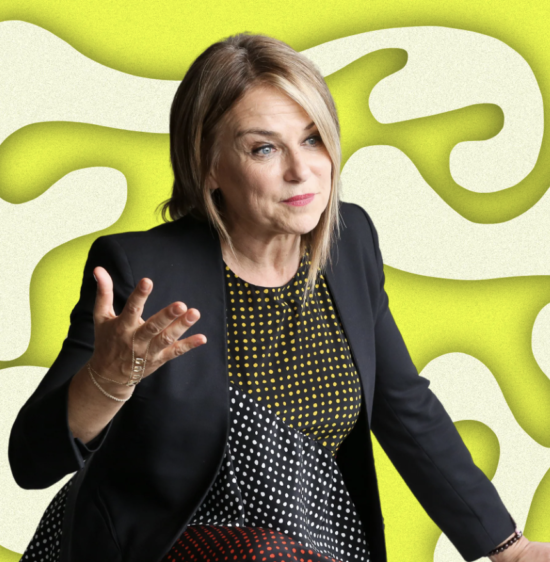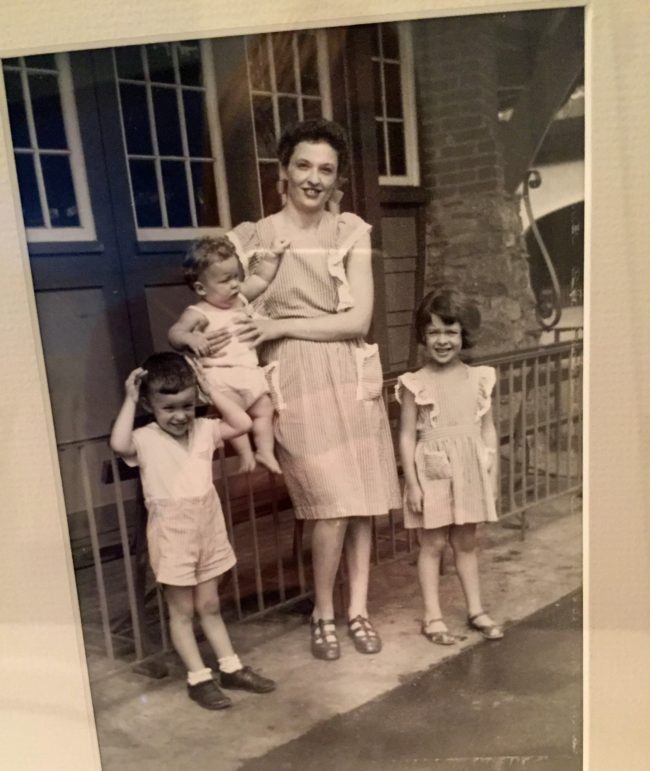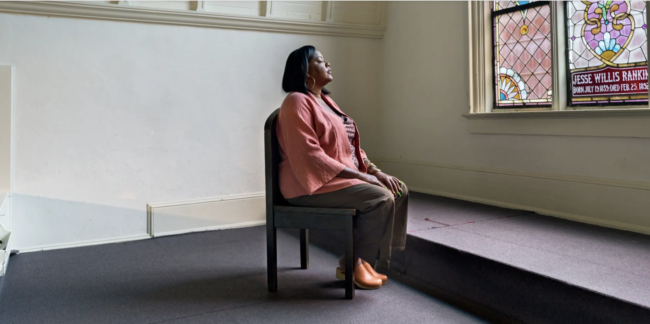We all have core stories we tell ourselves that keep us trapped in a negative narrative: “I can’t seem to speak up when my feelings are hurt; I have a hard time believing I’m good enough; I’m too old to be in a relationship.”
Esther Perel, the popular relationship therapist, believes that the stories we tell ourselves are adaptive responses to childhood trauma, where our stories were created to protect us.

Esther Perel delivering a talk
I grew up with a caring, but depressed mother, who simply didn’t have time for me. As a result, I became very independent, acting like I didn’t need anyone.
While I developed close friendships and experienced meaningful love relationships, I rarely revealed my feelings. It was hard for me to be vulnerable. I was afraid of being hurt, rejected, the way my mother had unwittingly rejected me.
In the process of writing a mother-daughter memoir, I came to perceive my mother, as too wounded to be there for me. I realized she didn’t intentionally reject me, but that her own childhood trauma made it difficult for her to bond with my infant self. This insight made it possible for me to create a new story, which led to new behavior where I learned to trust my feelings and verbalize them, no longer afraid to ask for what I needed.

My mother, feeling overwhelmed by childcare, surrounded by my brothers and me, age 5.
I know women who lack self-confidence, operating from stories where they insist, they’re not good enough to brave a new project or new relationship. When they’ve been able to trace their self-doubts to their childhood trauma, they’ve been liberated from their old stories, creating new stories of competency.
Coming up with a new story doesn’t happen overnight.
Sometimes it emerges from therapy, or from a personal commitment to practices that allow a new story to unfold. A regular meditation practice with an emphasis on being in the present can help to silence that internal critic obsessed with the past. Journaling along with a gratitude practice can promote clarity and a positive outlook.

Author Tricia Hersey in her daily meditation practice (The New York Times)
Many older women, myself included, hold stories influenced by our very ageist culture where we feel unattractive or not valued for our beliefs. New stories of our self-worth as an older woman often emerge from getting together with friends who are similarly caught up in ageist stories. Never underestimate the power of community healing.

A group of older women sharing new stories to combat ageism
Sometimes it can be difficult to recognize that you are trapped in a story. If an encounter leaves you anxious or depressed, there’s a good chance it can be traced to a negative story you’re telling yourself.
Not too long ago I had a friend I was spending a lot of time with who suddenly ghosted me. I went into a tailspin, asking myself over and over what I had done, feeling totally responsible for my rejection—hankering back to my maternal rejection.
Ester Perel reminds us “while we’re not in control of how life unfolds, we do have agency over how we structure and interpret it. Creating new stories can liberate us from defeating narratives.”
When I crafted a new story where I assured myself, I had been a good friend and would have to live with uncertainty, I was able to move on.

Writing a new story to transform past hurts
Our new stories hold hope, providing an off-ramp to the self-blame cycle.
Positive self-talk can be a useful tool in crafting a new story. I’m reminded of the Stuart Smiley sketch from the early years of Saturday Night Live, when Stuart, played by Al Franken, looked in a mirror and told himself, “I’m good enough, I’m smart enough, and doggone it, people like me.”
What new stories are you ready to live?